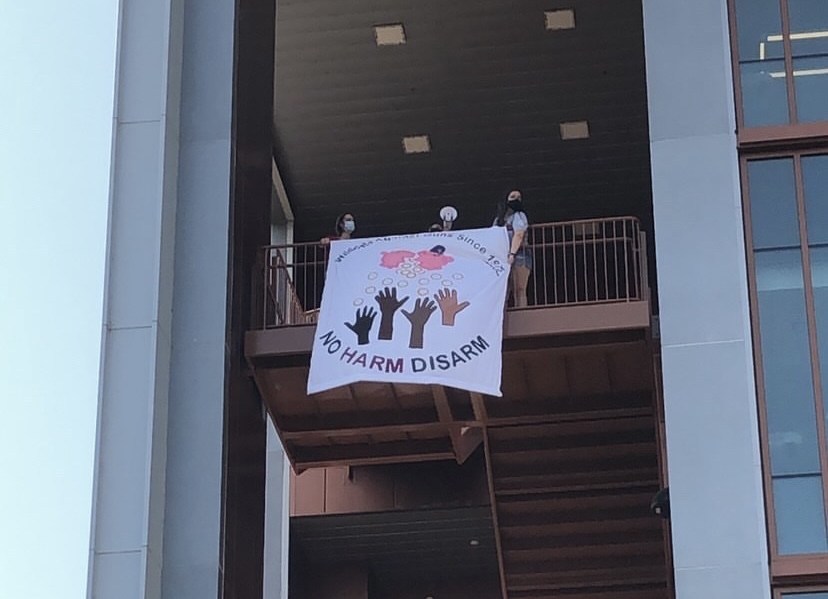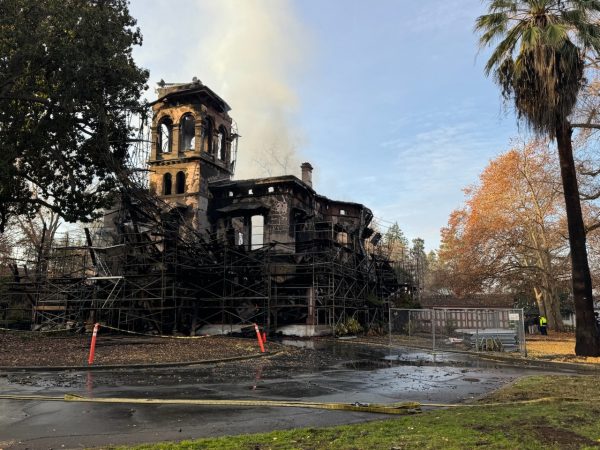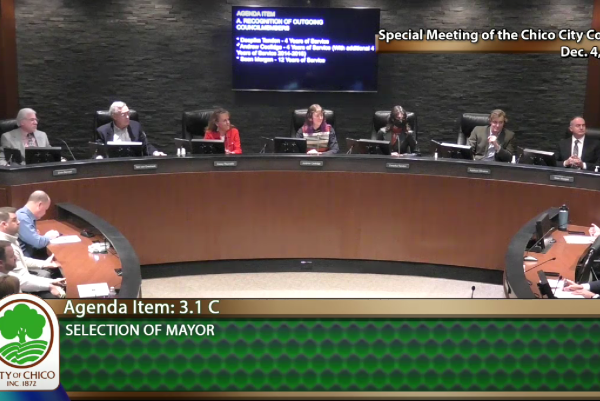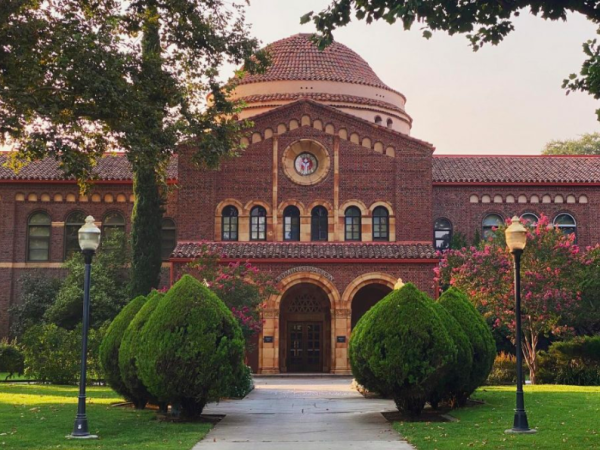Students call for the disarmament of University Police
Students for Quality Education
Three members of Students of Quality Education calling for the disarmament of University Police and the reallocation of funding. Photo taken by SQE members on Oct. 4
Seven Chico State students took to campus to disarm and defund the University Police on Oct. 4
“Our campus says we need to have braver conversations. Well, here we are,” said Melys Bonifacio-Jerez.
Bonifacio-Jerez was terrified while growing up in a low-income neighborhood in South Bronx, New York. They said it was a heavily overpoliced environment that didn’t feel safe.
“We could not rely on the police to help us,” Bonifacio-Jerez said.
Their community didn’t need police presence, Bonifacio-Jerez said it needed resources. This was personal for them.
Coming to Chico state, Bonifacio-Jerez hoped that it would get easier, but it hasn’t. They talked about how militarized they felt the University Police are and cited the military-grade weapons and gear they are authorized to carry.
“The police here are no different from the police in New York City,” Bonifacio-Jerez said.
It was a concerning fact to face, considering the experiences they had with police. It’s distracting for them and their learning to be on campus, identifying as an Afro-Latinx student.
“I stick out like a sore thumb on our campus,” Bonifacio-Jerez said. “As a brown person saying ‘no harm disarm, cops don’t keep us safe,’ that makes me a target sometimes.”
Kat Bautista-Ong spoke of her initial fears of protesting as an openly-queer POC on campus. They were surprised by the support of her peers and the curiosity, along with willingness to listen.
The protestors were met with respect from the campus. Bautista-Ong spoke of experiences she had with other students and faculty who wanted to understand their cause, or agreed with their message. Even on social media, the campaign was met with compassion by the Chico State community.
Both are interns for Students for Quality Education, an organization founded in 2007 to ensure equality and accessibility for all CSU campuses. It currently has chapters at all 23 CSU campuses.
“We demand our CSUs disarm CSU campus police and security and invest in mental health counselors, mental health crisis intervention teams, Black resource centers, and mandatory de-escalation and unconscious bias training for all campus police and security,” the SQE website states.
Bonifacio-Jerez mentioned that the organization is a place of community, there’s a sense of belonging and safety where they feel they can take up space.
The protest Monday was a part of their “No Harm, Disarm!” campaign.
The situation is only going to escalate as time goes on, Bautista-Ong said.
“It’s our campus, our education, and it’s time to make a change.”
Kat Bautista-Ong
To achieve this, protestors believe the funds allocated to the University Police would be better spent toward student resources, such as mental health services.
After publication The Orion received five concrete demands from SQE:
- Defund the police, and invest in affirming and life-giving resources & spending for Black people, Indigenous people, all people of color, and all people disproportionally harmed by policing & the carceral system.
- Remove all funding for the UPD firearms budget and remove all weapons/arms/firearms from every CSU campus by the end of Spring 2022.
- Create a student and faculty led oversight committee/body to oversee diversion of money and funding.
- Hire more mental health counselors in proportion to the student body to be reflective of the American Psychological Association student ratio guidelines – 1 counselor to every 1k to 1.5k students on campus.
- Student affairs decrease their relationship with policing and do community outreach for restorative and Transformative resources instead.
The organization has created a petition to try to bring about this reform. It hopes to get a resolution passed through the Associated Students to disarm University Police, said Bonifacio-Jerez.
“My faculty and my student peers have our back,” Bonifacio-Jerez said. “It just goes to show that we need to keep having more of these conversations on our campus.”
Correction: The Orion received additional information after our initial publication. The article has been updated accordingly.
Ava Norgrove can be reached at [email protected]








